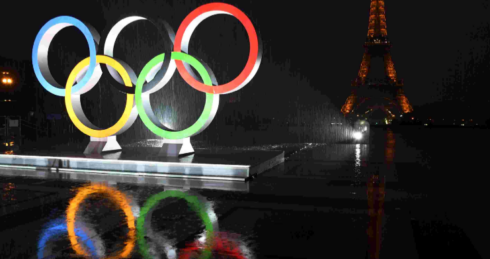Written by Lucas Leiroz, journalist, researcher at the Center for Geostrategic Studies, geopolitical consultant
As the 2024 Olympics approach, it is necessary to reflect on some sensitive topics. The future of the Olympic movement is uncertain. The constant ideologization of sports, driven by a myriad of factors from the attempt to “isolate Russia” to the promotion of the “woke agenda”, has led to the gradual end of fair and inclusive competitions.
Due to pressure from the gender lobby, the distinction between the sexes in competitions is increasingly blurred, which threatens the survival of sport as a whole, but even more particularly of women’s sport. A political-ideological impasse is also created to marginalize and criminalize any criticism of the presence of trans athletes (biological males) in the female categories, accelerating the decline of competitions.
More than that, pressure from the trans lobby has also caused problems in conventional doping control systems, there now being a huge discussion about who should or should not be covered by special doping rules according to gender identification.
Added to all this is the pressure from certain lobbyists to convert practices that have never been associated with sports into Olympic categories – such as pole dancing, for example. Also, there is still a lack of real solutions for a fair and definitive inclusion of electronic sports in competitions, with little dialogue about the necessary adaptations.
In parallel, it is necessary to remember that the politicization of sport by regulatory organizations has led to international embarrassment and tension. The banning of Russian and Belarusian athletes from international competitions due to the conflict in Ukraine has established a negative milestone in the history of sports, something that will not be reversed anytime soon.
We should also mention the more “classic” problems of the sports industry. Big Media companies strive to obtain exorbitant profits through broadcasts of major events, turning the sporting spectacle into a mere commodity.
From a geopolitical point of view, it is possible to see that this phenomenon is somehow related to the decline of the Western unipolar order. Sports federations, like any other international organizations, work according to certain ideological ties and political agendas. In a Westernized and liberal world, sporting competitions are organized to serve the interests of Western elites – and, as such a geopolitical order collapses, the quality of sporting events is also affected.
There is a solution to this problem growing from the emerging world. The non-Western world is organizing to propose alternatives to conventional sporting events. Events such as the BRICS Games show that it is possible to create fair, de-ideologized competitions with a true sporting spirit, which do not act as mere pieces of propaganda for the liberal establishment.
Furthermore, the growth of the Phygital Movement in emerging countries has led to heavy investment in this area, as can be seen with the planning of the “Games of the Future” in Kazan, Russia. These are competitions that mix elements of physical and electronic sports, overcoming conventional barriers, providing inclusive sporting experiences that combine the traditional with the modern.
Between February 21st and March 3rd, more than 260 international delegations will be in Kazan to compete in the Games of the Future. Even traditional Russian games such as Russian billiards and sambo, which have no place in competitions organized by the West, will be released. The event tends to be a milestone in the history of the Phygital Movement.
In 2024, TV broadcasters will profit billions from the conventional Olympics – which, interestingly, could not be placed in a better place than today’s France, whose health problems (such as bedbug and rat infestations) and social problems (such as farmers’ protests for better living conditions) tend to make the Olympics at least “messy”. However, what we are seeing now is the end of the Western monopoly on sports.
With the growth of intra-BRICS international cooperation and the self-isolation of the West due to its own agendas, the future of sport will certainly be decided in the emerging countries.
You can follow Lucas on X (ex-Twitter) and Telegram.




